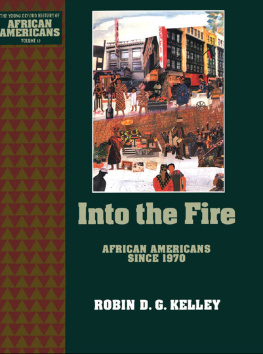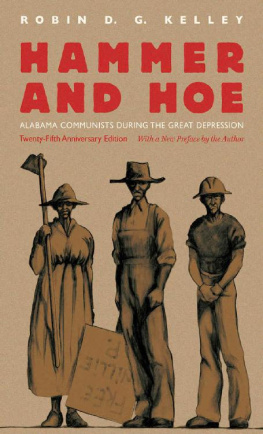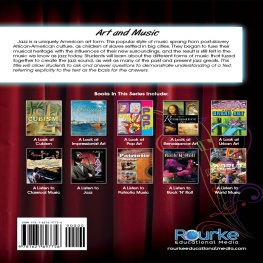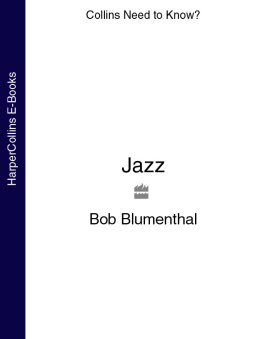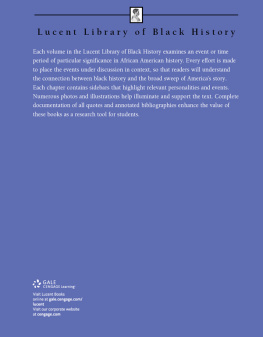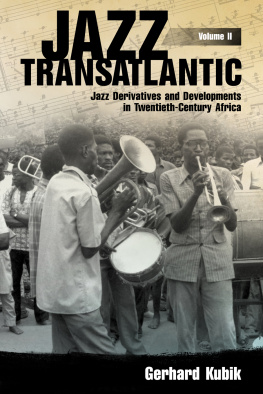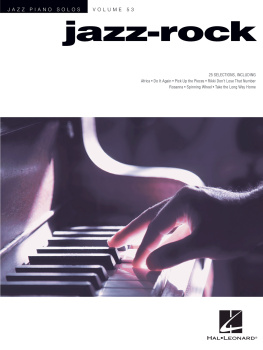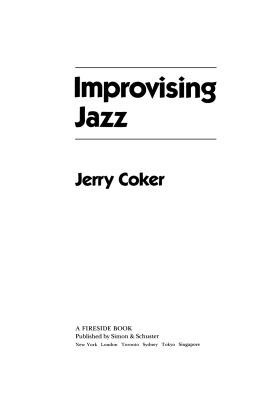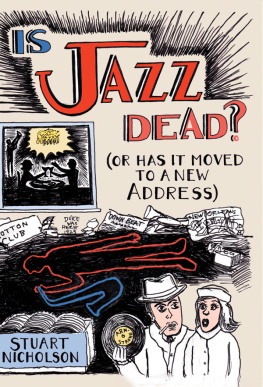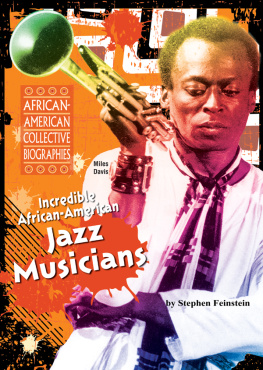Copyright 2012 by the President and Fellows of Harvard College
All rights reserved
Jacket image: Howard University, Moorland-Springarn Research Center
Jacket design: Lisa Roberts
Library of Congress Cataloging-in-Publication Data
Kelley, Robin D. G.
Africa speaks, America answers : modern jazz in revolutionary times /
Robin D. G. Kelley.
p. cm.(The Nathan I. Huggins lectures)
Includes bibliographical references and index.
ISBN 978-0-674-04624-5 (alk. paper)
1. Warren, Guy, 19232008. 2. Weston, Randy, 19263. Abdul-Malik, Ahmed. 4. Benjamin, Sathima Bea. 5. Fela, 19381997. 6. JazzAfrican influences. 7. Jazz19511960History and criticism. 8. Jazz19611970History and criticism. 9. Jazz musiciansBiography. I. Title.
ML3508.K44 2012
781.657296dc23 2011039028
africa speaks, america answers
THE NATHAN I. HUGGINS LECTURES
Africa Speaks, America Answers originated several years ago as the Nathan I. Huggins Lectures sponsored by the W. E. B. Du Bois Institute at Harvard University. When Professor Henry Louis Gates Jr. graciously invited me to deliver the lectures in the spring of 2003, I was hard at work on a biography of the jazz pianist and composer Thelonious Monk. I suppose I could have lifted three lectures from my book-in-progress or used the occasion to rethink or reassess previous work. I chose to do neither. There was nothing in my biography of Monk I could have easily culled without duplicating the contents of the book, and I was too ensconced in jazz studies to suddenly shift analytic gears. So rather than turn down this extraordinary invitation, I made the imprudent decision to come up with something completely new: to explore a series of encounters between jazz and modern Africa through an examination of four artistspianist Randy Weston, drummer Guy Warren (Kofi Ghanaba), bassist Ahmed Abdul-Malik, and saxophonist Kippie Moeketsi.
It seemed like a great idea at the time. Preparing the lectures allowed me to dig deeper into the lives and works of these extraordinary andwith the exception of Westonlargely unknown musicians. They also had something in common: each of these men was linked to Thelonious Monk. Weston and Warren befriended Monk, Abdul-Malik played in Monks band for well over a year, and although Moeketsi never met him, he adored Thelonious and introduced his music to fellow South African musicians. But the critical element connecting each of these artists was not their association with Monk; rather, it was their connection to Africa. Although their links to modern Africa and to the jazz world varied, each one identified with Africas struggle for liberation and made music dedicated to, or inspired by, the demands for independence and self-determination. The lectures, in short, were a set of ruminations on how the inexorable movement for African freedom in the 1950s and early 1960s influenced the work of four jazz musicians and composers on both sides of the Atlantic.
Though quite provisional, the lectures were well received, and the major conclusions have survived significant revision and expansion. I spent the next seven years tapping additional archives, combing through a wide range of primary sources and contemporary publications, and conducting several more interviews. Randy Weston has been particularly generous with his stories, time, and personal papers. His memoir with Willard Jenkins, African Rhythms (2010), has also been enormously valuable. In 2004, I traveled to Accra, Ghana, to conduct extensive interviews with Kofi Ghanaba and to examine his personal archives. I also met the remarkable South African vocalist and composer Sathima Bea Benjamin and decided to include her in the book. She had been living in exile for most of her professional life and, during the early part of her career, lived in the shadow of her husband, pianist Abdullah Ibrahim. I had initially viewed her role as emblematic of the challenges facing South African artists in exile, especially in the postcolonial era when the struggle against apartheid seemed like Africas final frontier in the fight for freedom. Carol Ann Muller, the leading scholar of the life and work of Sathima Bea Benjamin, has emphasized the part that exile played in shaping her politics and aesthetics. But as I shifted focus to her formative years in South Africa, I realized that her unique identity as a jazz singer and her struggle for visibility owe a great deal to her experiences as a woman in a masculine world, as well as to her own creative choices.
I continued to rework this material and deliver substantially revised versions of these lectures to colleagues all over the world, from Seattle to St. Louis, Toronto to Belfast, Oxford to Okinawa. Every discussion opened new horizons, raised fresh questions, and led to additional research. Africa Speaks also benefited from several books whose core themes dovetail with my own workparticularly Ingrid Monsons landmark study, Freedom Sounds: Civil Rights Call Out to Jazz and Africa (2007). Monson brilliantly reveals how Civil Rights, Black Power, and the struggle for African independence shaped the music and the musicians, inspiring political activism as well as aesthetic developments in jazz. Likewise, Penny Von Eschens illuminating Satchmo Blows Up the World: Jazz Ambassadors Play the Cold War (2006) sheds light on how the U.S. State Department deployed (and employed) jazz musicians to win over newly independent African nations, Eastern bloc countries, Latin America, and the Middle East, inadvertently politicizing musicians as well as generating opportunities for cultural exchange. And then there has been an explosion of new writing on jazz in South AfricaGwen Ansells comprehensive Soweto Blues: Jazz, Popular Music and Politics in South Africa (2005); Michael F. Titlestad, Making the Changes: Jazz in South African Literature and Reportage (2005); Carol Ann Muller, Focus: Music of South Africa (2008) and, with Sathima [Benjamin] Ibrahim, Musical Echoes: South African Women Thinking in Jazz (2011); not to mention David Coplans substantial revision of his classic study, In Township Tonight! South Africas Black City Music and Theater (2008). In general, the scholarship on South African jazz has been quite substantial, and throughout this project I have benefited immensely from the work of Christopher J. Ballantine, Marabi Nights: Early South African Jazz and Vaudeville (2004), and the late Hotep Idris Galeta. Because so much has been written on jazz in South Africa since 2003, I chose to eliminate what would have been a chapter on alto saxophonist Kippie Moeketsi and the Jazz Epistles, although they figure prominently in the chapter on Sathima Bea Benjamin.
Consequently, Africa Speaks, America Answers is a bigger, more nuanced, and hopefully better book than I had originally conceived. At the same time, it is neither comprehensive nor definitive. Just over the last half-century, literally hundreds of musicians have navigated the musical currents on both sides of the Atlantic, promoted transnational dialogues and developed innovative fusions, and found in such intercultural exchanges insurgent political and cultural voices. The more notable figures include Art Blakey, Max Roach, Yusef Lateef, Pharaoh Sanders, the Congos Joseph Kabasele, Nigerias Zeal Onyia and Bayo Martins, dozens of South African artists, and more recently David Murray, Rene McLean, Craig Harris, Graham Haynes, Steve Coleman, and Neil Clarkeand this is just the tip of the iceberg. While some of these musicians appear in the following pages, I decided that a collective biography, bounded by the period of decolonization, would allow me to examine particular trans-Atlantic journeys with greater depth and complexity.


